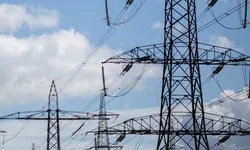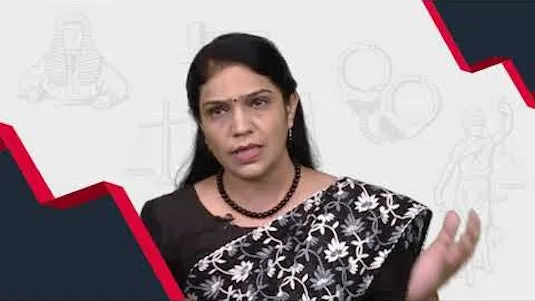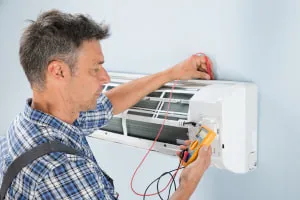
Electric Power Systems 
This course provides an introduction to the electric utility industry, covering standards, policies, and basic terminology. It is designed to familiarize students with the fundamentals of electric power systems. ▼
ADVERTISEMENT
Course Feature
![]() Cost:
Cost:
Free
![]() Provider:
Provider:
Coursera
![]() Certificate:
Certificate:
No Information
![]() Language:
Language:
English
![]() Start Date:
Start Date:
Self Paced
Course Overview
❗The content presented here is sourced directly from Coursera platform. For comprehensive course details, including enrollment information, simply click on the 'Go to class' link on our website.
Updated in [March 06th, 2023]
This course provides an overview of the electric power system, from generation of electricity to the wall plug. It covers the standards and policies of the electric utility industry, as well as the common components such as power cables and transformers. It is designed for individuals considering a career in the energy field, who have a high school diploma and basic knowledge of mathematics, as well as existing energy sector employees with less than three years of experience who have not completed similar training. The course will provide a foundation of industry concepts and vocabulary used in the business.
[Applications]
Students who have completed this course are encouraged to apply their knowledge to the electric utility industry. They can use their understanding of the electric power system to develop solutions to industry challenges, such as improving efficiency and reliability. Additionally, they can use their knowledge to identify and analyze potential risks and develop strategies to mitigate them. Finally, they can use their understanding of the industry to develop innovative solutions to improve customer service and satisfaction.
[Career Paths]
1. Electric Power Systems Engineer: Electric Power Systems Engineers are responsible for designing, developing, and maintaining electrical power systems. They must have a strong understanding of electrical engineering principles and be able to apply them to the design and operation of power systems. As the demand for renewable energy sources increases, the need for Electric Power Systems Engineers is expected to grow.
2. Power System Analyst: Power System Analysts are responsible for analyzing the performance of power systems and making recommendations for improvement. They must have a strong understanding of electrical engineering principles and be able to apply them to the analysis of power systems. As the demand for renewable energy sources increases, the need for Power System Analysts is expected to grow.
3. Power System Operator: Power System Operators are responsible for the safe and efficient operation of power systems. They must have a strong understanding of electrical engineering principles and be able to apply them to the operation of power systems. As the demand for renewable energy sources increases, the need for Power System Operators is expected to grow.
4. Renewable Energy Technician: Renewable Energy Technicians are responsible for the installation, maintenance, and repair of renewable energy systems. They must have a strong understanding of electrical engineering principles and be able to apply them to the installation and maintenance of renewable energy systems. As the demand for renewable energy sources increases, the need for Renewable Energy Technicians is expected to grow.
[Education Paths]
1. Electrical Engineering: Electrical engineering is a field of engineering that deals with the study and application of electricity, electronics, and electromagnetism. It is a rapidly growing field, with new technologies and applications being developed every day. Electrical engineers are responsible for designing, developing, testing, and maintaining electrical systems and components. They also work on the development of new technologies, such as renewable energy sources, and the integration of these technologies into existing systems.
2. Power Systems Engineering: Power systems engineering is a specialized field of engineering that focuses on the design, operation, and maintenance of power systems. It involves the study of electrical power systems, including the generation, transmission, and distribution of electricity. Power systems engineers are responsible for ensuring that power systems are reliable, efficient, and safe. They also work on the development of new technologies, such as renewable energy sources, and the integration of these technologies into existing systems.
3. Energy Management: Energy management is a field of study that focuses on the efficient use of energy resources. It involves the study of energy sources, energy conservation, and energy efficiency. Energy managers are responsible for developing and implementing strategies to reduce energy consumption and costs. They also work on the development of new technologies, such as renewable energy sources, and the integration of these technologies into existing systems.
4. Renewable Energy: Renewable energy is a rapidly growing field of study that focuses on the development and use of renewable energy sources. It involves the study of solar, wind, geothermal, and other renewable energy sources. Renewable energy engineers are responsible for designing, developing, and implementing renewable energy systems. They also work on the development of new technologies, such as renewable energy sources, and the integration of these technologies into existing systems.
Pros & Cons

Informative

Easy syllabus

Helpful for career

Good insight into concepts

Good for electricity generation

Instructor not engaging

US focused content

Seminarstyle lectures

Confusing questions

Brief session
Course Provider

Provider Coursera's Stats at AZClass
Electric Power Systems presents the electric utility industry covering standards, policies and basic terminology. It is designed to familiarize students with the fundamentals of electrical power systems. Learners gain an understanding of electrical industry standards and policies as well as basic vocabulary used in business. This knowledge helps learners better understand the industry and the regulations governing it. Learners get an overview of the electrical system, from power generation all the way to the wall plug. This includes learning about the various parts of the system, as well as common components such as power cables and transformers. This knowledge helps learners better understand the components of a system and how they work together.
Discussion and Reviews
0.0 (Based on 0 reviews)
Explore Similar Online Courses

Basic PHP Development with Bootstrap GitHub and Heroku

Fundamentals of Legal Aspects of Business

Python for Informatics: Exploring Information

Social Network Analysis

Introduction to Systematic Review and Meta-Analysis

The Analytics Edge

DCO042 - Python For Informatics

Causal Diagrams: Draw Your Assumptions Before Your Conclusions

Whole genome sequencing of bacterial genomes - tools and applications

Pressure Force Motion and Humidity Sensors

Appliance Testing Fundamentals


Start your review of Electric Power Systems